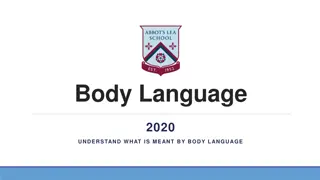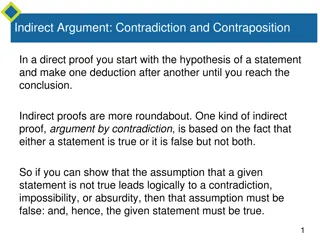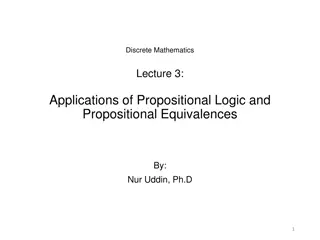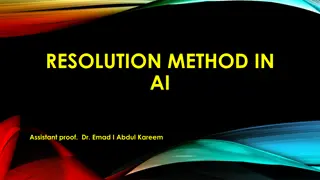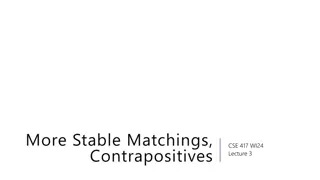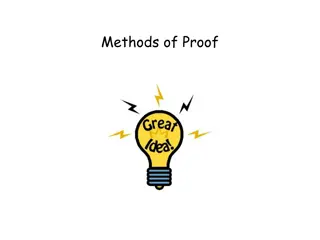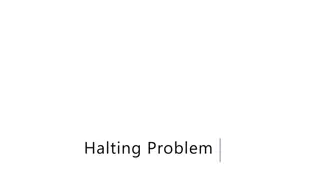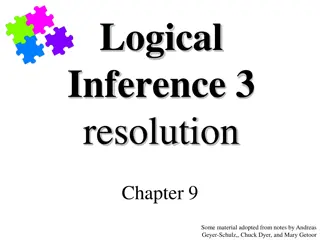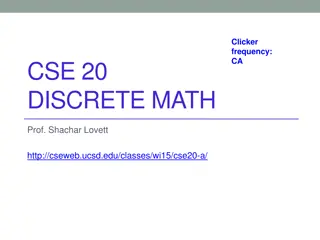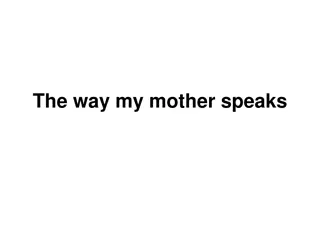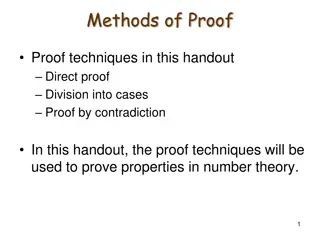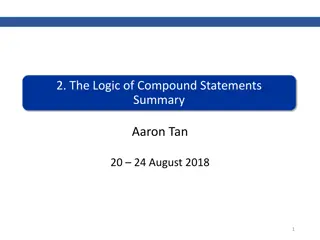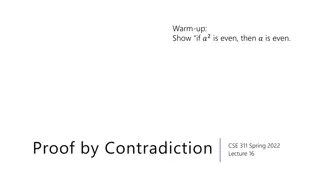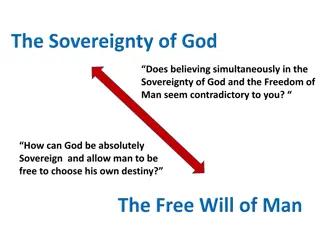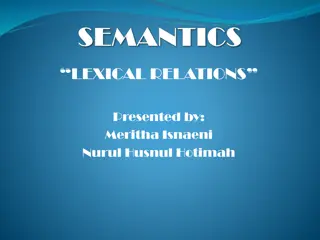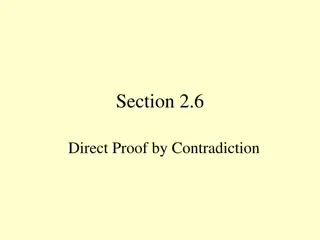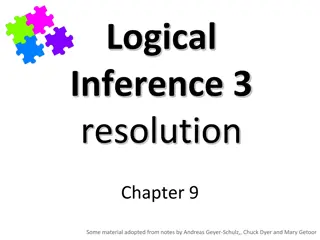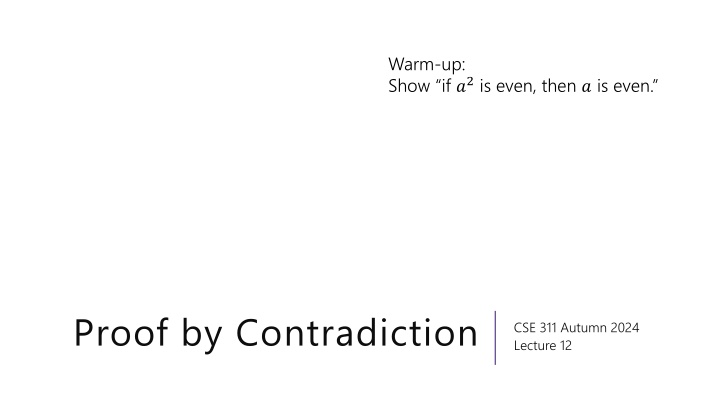
Proof Techniques: Evenness of 2 and Its Implications - CSE 311 Autumn 2024 Lecture 12
Explore the proofs related to the evenness of the number 2 and its implications, including direct proof, contrapositive, and proof by contradiction. Understand the reasoning behind these techniques through examples and application in mathematical assertions.
Download Presentation

Please find below an Image/Link to download the presentation.
The content on the website is provided AS IS for your information and personal use only. It may not be sold, licensed, or shared on other websites without obtaining consent from the author. If you encounter any issues during the download, it is possible that the publisher has removed the file from their server.
You are allowed to download the files provided on this website for personal or commercial use, subject to the condition that they are used lawfully. All files are the property of their respective owners.
The content on the website is provided AS IS for your information and personal use only. It may not be sold, licensed, or shared on other websites without obtaining consent from the author.
E N D
Presentation Transcript
Warm-up: Show if ?2 is even, then ?is even. Proof by Contradiction CSE 311 Autumn 2024 Lecture 12
Trying a direct proof ?(Even(?2) Even(?)) Let ? be an arbitrary integer and suppose that ?2 is even. By definition of even, ?2= 2? for some integer ?. Taking the positive square-root of each side, we get ? = . 2? Taking a square root of a variable is tricky! It s hard to do algebra on. Therefore ? is even.
Proving by contrapositive ?(Even(?2) Even(?)) ?( Even(?) Even(?2)) ?(Odd(?) Odd(?2)) We argue by contrapositive. Let ? be an arbitrary integer and suppose ? is odd. By definition of odd, ? = 2? + 1 for some integer ?. Squaring both sides, we get ?2= 2? + 12= 4?2+ 4? + 1 Rearranging, we get ?2= 2 2?2+ 2? + 1. Since ? is an integer, 2?2+ 2? is an integer, we thus get that ?2 meets the definition of odd (being 2 times an integer plus one), as required. Since ? was arbitrary, we have that for every odd ?, that ?2 is also odd, which is the contrapositive of our original claim.
Signs you might want to use proof by contrapositive 1. The hypothesis of the implication you re proving has a not in it (that you think is making things difficult) 2. The target of the implication you re proving has an or or not in it. 3. There s a step that is difficult forward, but easy backwards e.g., taking a square-root forward, squaring backwards. 4. You get halfway through the proof and you can t get ahold of what you re trying to show. e.g., you re working with a not equal instead of an equals or every thing doesn t have this property instead of some thing does have that property All of these are reasons you might might want contrapositive. Sometimes you just have to try and see what happens!
Proof By Contradiction Suppose the negation of your claim. Show that you can derive False (i.e. ( claim) F ) A correct proof shows that the implication is true. So claim must be False. So claim must be True!
Proof By Contradiction Skeleton Suppose, for the sake of contradiction ? ? ? But ? and ? is a contradiction! So we must have ?.
Proof By Contradiction Claim: 2 is irrational (i.e. not rational). Proof: Rational A real number ? is rational if (and only if) there exist integers ? and ?, with ? ? such that ? = ?/?. Rational(?) ? ?( Integer ? Integer ? (? = ? ?) ? 0)
Proof By Contradiction Claim: 2 is irrational (i.e. not rational). Proof: Suppose for the sake of contradiction that 2 is rational. But [] is a contradiction!
Proof By Contradiction If ?2 is even then ? is even. Claim: 2 is irrational (i.e. not rational). Proof: Suppose for the sake of contradiction that 2 is rational. By definition of rational, there are integers s,? such that t 0 and 2 = ?/?. Without loss of generality, let ?/? be in lowest terms (i.e., with no common factors greater than 1). Fancy mathematician speak for It looks like I m choosing more specific values, but it s ok for me to do that--- they re really still arbitrary That s a contradiction! We conclude 2 is irrational.
When can I say without loss of generality? The claim you re trying to prove is fully general still. What you re doing looks like a new assumption but isn t. (Here: the variables are still arbitrary) Here: we d just divide s,t by their common factors (i.e., put the fraction in lowest-terms) and continue the proof. Another common example: Let ?,? be integers; without loss of generality, assume ? ? (one of them must be bigger, just give the bigger one the name ?). Only use if your reader will immediately agree that you can still prove the claim! If you re worried, tell the reader how to get those values (here, define ?,? as the reduced fraction, and continue with ?,? as variables).
Proof By Contradiction If ?2 is even then ? is even. Claim: 2 is irrational (i.e. not rational). Proof: Suppose for the sake of contradiction that 2 is rational. By definition of rational, there are integers s,? such that t 0 and 2 = ?/?. Without loss of generality, let ?/? be in lowest terms (i.e., with no common factors greater than 1). 2 =? ? 2 =?2 ?2 2?2= ?2 so ?2 is even. That s a contradiction! We conclude 2 is irrational.
Proof By Contradiction If ?2 is even then ? is even. Claim: 2 is irrational (i.e. not rational). Proof: Suppose for the sake of contradiction that 2 is rational. By definition of rational, there are integers s,? such that t 0 and 2 = ?/?. Without loss of generality, let ?/? be in lowest terms (i.e., with no common factors greater than 1). 2 =? ? 2 =?2 ?2 2?2= ?2 so ?2 is even. By the fact above, ? is even, i.e. s= 2? for some integer ?. Squaring both sides ?2= 4?2 Substituting into our original equation, we have: 2?2= 4?2, i.e. ?2= 2?2. So ?2 is even (by definition of even). Applying the fact above again, ? is even. But if both ? and ? are even, they have a common factor of 2. But we said the fraction was in lowest terms. That s a contradiction! We conclude 2 is irrational.
Proof By Contradiction How in the world did we know how to do that? In real life lots of attempts that didn t work. Be very careful with proof by contradiction without a clear target, you can easily end up in a loop of trying random things and getting nowhere.
Whats the difference? What s the difference between proof by contrapositive and proof by contradiction? Show ? ? Starting Point Target Proof by contradiction ? ? (? ?) Something false Proof by contrapositive ? ? Show ? Starting Point Target Proof by contradiction ? Something false Proof by contrapositive --- ---
Another Proof By Contradiction Claim: There are infinitely many primes. Proof:
Another Proof By Contradiction Claim: There are infinitely many primes. Proof: Suppose for the sake of contradiction, that there are only finitely many primes. Call them ?1,?2, ,??. But [] is a contradiction! So there must be infinitely many primes.
Another Proof By Contradiction Claim: There are infinitely many primes. Proof: Suppose for the sake of contradiction, that there are only finitely many primes. Call them ?1,?2, ,??. Consider the number ? = ?1 ?2 ??+ 1 Case 1: ? is prime Case 2: ? is composite But [] is a contradiction! So there must be infinitely many primes.
Another Proof By Contradiction Claim: There are infinitely many primes. Proof: Suppose for the sake of contradiction, that there are only finitely many primes. Call them ?1,?2, ,??. Consider the number ? = ?1 ?2 ??+ 1 Case 1: ? is prime ? > ?? for all ?. But every prime was supposed to be on the list ?1, ,??. A contradiction! Case 2: ? is composite Some prime on the list (say ??) divides ?. So ?%??= 0. and ?1?2 ??+ 1 %??= 1. But ? = ?1?2 ??+ 1 . That s a contradiction! In either case we have a contradiction! So there must be infinitely many primes.
Just the Skeleton For all integers ?, if ?2 is even, then ?is even.
Just the Skeleton For all integers ?, if ?2 is even, then ?is even. Suppose for the sake of contradiction, there is an integer ?, such that ?2 is even and ? is odd. [] is a contradiction, so for all integers ?, if ?2 is even, then ? is even.
Just the Skeleton There is not an integer ? such that for all integers ?, ? ?.
Just the Skeleton There is not an integer ? such that for all integers ?, ? ?. Suppose, for the sake of contradiction, that there is an integer ? such that for all integers ?, ? ?. [] is a contradiction! So there is not an integer ? such that for all integers ?,? ?.
Proof By Cases If ? is prime then ?2 is odd or 2|?. We need two different arguments one for 2 and one for all the other primes
Proof By Cases Let ? be an arbitrary prime number We divide into two cases. Case 1: ? is even If ? is even then ? = 2? for some integer ?, this is the definitions of 2|?. Case 2: ? is odd If ? is odd, then ? = 2? + 1 for some integer ?. Squaring, we get ?2= 4?2+ 4? + 1 = 2 2?2+ 2? + 1. Since ? is an integer 2?2+ 2? is as well, so ?2 is odd by definition. In either case, ? met the condition of 2|? or ?2 is odd, so
Proof By Cases Make it clear how you decide which case your in. It should be obvious your cases are exhaustive Reach the same conclusion in each of the cases, and you can say you ve got that conclusion no matter what (outside the cases). Advanced version: sometimes you end up arguing a certain case can t happen
Exists proofs Suppose I claim that for all integers, if ? is even then 8|?2. That doesn t look right. How do you prove me wrong? Want to show: ? ???? ? 8 ?^2 Consider ? = 6. Then ? is even (since 6 = 3 2), but 8 does not divide 36 (as 36%8 = 4).
Proof By [Counter]Example To prove an existential statement (or disprove a universal statement), provide an example, and demonstrate that it is the needed example. You don t have to explain where it came from! (In fact, you shouldn t) Computer scientists and mathematicians like to keep an air of mystery around our proofs. (or more charitably, we want to focus on just enough to believe the claim) shouldn t)
Skeleton of an Exists Proof To show ?(? ? ) Consider ? =[the value that will work] [Show that ? does cause ?(?) to be true.] So [value] is the desired ?. You ll probably need some scratch work to determine what to set ? to. That might not end up in the final proof!

